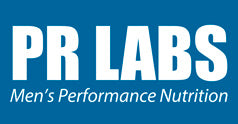Quercetin
for Prostatitis
What is Quercetin?
Quercetin is a flavonoid, or plant pigment, found in many colorful fruits and vegetables. It can be found in apples, oranges, leafy green vegetables, berries, green tea, and even red wine. Packed with antioxidants, quercetin is also known for its anti-inflammatory properties that may help to reduce symptoms associated with infection or inflammation. The antioxidant properties of flavonoids such as quercetin help your body to fight off cell-damaging free radicals. Free radicals are unstable atoms that can damage cells, causing illness, aging, or infection.

Although quercetin is abundant in many food sources, it is also available in powder and capsule form as a dietary supplement. It has been used for decades to reduce symptoms associated with allergies, inflammation, urinary issues, prostatitis, and more.

Quercetin For Men
Is there a connection between quercetin and prostate health? Quercetin has grown in popularity as a dietary supplement but more recently has been linked to prostate health and symptom relief for prostatitis.
Prostatitis is a condition of inflammation and swelling of the prostate gland and the most common symptoms include pelvic pain, painful urination, painful ejaculation, and sexual dysfunction. Studies have shown that quercetin may reduce inflammation of the prostate and help with alleviating the symptoms mentioned above.
The anti-inflammatory properties of quercetin have also been linked to reduce symptoms of benign prostatic hyperplasia (BPH) and researchers have also found evidence to believe that quercetin’s antioxidant properties may aid in protecting against cancerous prostate cells.
Although it can be used by both men and women, quercetin is often marketed toward men or is included in supplements that support prostate health.
Are There Any Side Effects?
Although Quercetin is considered to be generally safe, only mild side effects have been reported and may include headache and/or upset stomach.
High doses of quercetin for an extended period should be avoided, especially if you are pregnant or have kidney problems.
Natural dietary supplements may cause an interaction with certain medications or antibiotics. Hence, it is important that you talk to your doctor before starting the use of quercetin or any natural supplement.

Why We Included it in Prost-P10x
While formulating Prost-P10x, our advanced prostate health supplement, we made sure to include the most potent and effective ingredients that have been clinically proven to promote prostate health.
Prost-P10x is a powerful and natural supplement that contains quercetin along with other vitamins and minerals that support prostate health. When taken regularly, our formula can promote healthy prostate size, normal urination flow, and general inflammation support in men.
Clinical Trials For Quercetin
Below is an abstract from a study called “Quercetin in men with category III chronic prostatitis: a preliminary prospective, double-blind, placebo-controlled trial” by D. A. Shoskes, S. I. Zeitlin, A. Shahed, J. Rajfer.
“Thirty men with category IIIa and IIIb chronic pelvic pain syndrome were randomized in a double-blind fashion to receive either placebo or the bioflavonoid quercetin 500 mg twice daily for 1 month. The NIH chronic prostatitis symptom score was used to grade symptoms and the quality-of-life impact at the start and conclusion of the study. In a follow-up unblind, open-label study, 17 additional men received 1 month of a supplement containing quercetin, as well as bromelain and papain (Prosta-O), which enhance bioflavonoid absorption. Results: Two patients in the placebo group refused to complete the study because of worsening symptoms, leaving 13 placebo and 15 bioflavonoid patients for evaluation in the blind study. Both the quercetin and placebo groups were similar in age, symptom duration, and initial symptom score. Patients taking placebo had a mean improvement in NIH symptom score from 20.2 to 18.8 (not significant), while those taking the bioflavonoid had a mean improvement from 21.0 to 13.1 (P = 0.003). Twenty percent of patients taking placebo and 67% of patients taking the bioflavonoid had an improvement of symptoms of at least 25%. In the 17 patients who received Prosta-Q in the open-label study, 82% had at least a 25% improvement in symptom score. Conclusions: Therapy with the bioflavonoid quercetin is well tolerated and provides significant symptomatic improvement in most men with chronic pelvic pain syndrome.”
Urology vol. 54,6 (1999): 960-3. doi:10.1016/s0090-4295(99)00358-1Subscribe & Save 10% Off Your First Order
We’ll send you a coupon code for 10% off your frist order. Stay on our list and we’ll keep you updated with tips for optimal health, new product launches, sales, and more!


